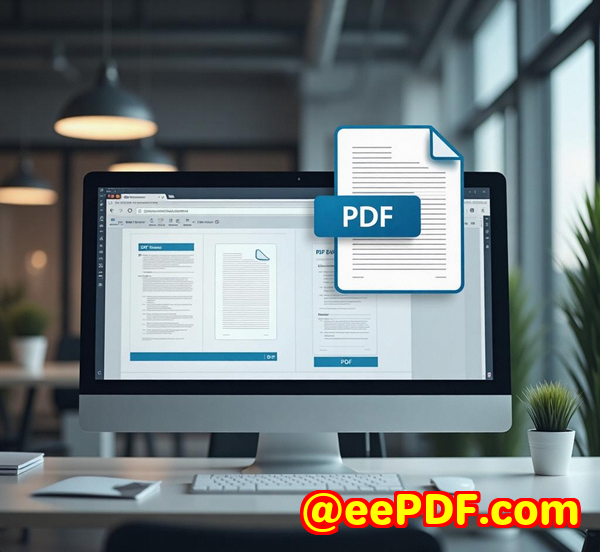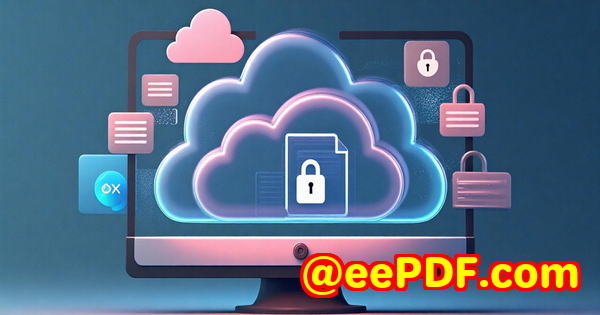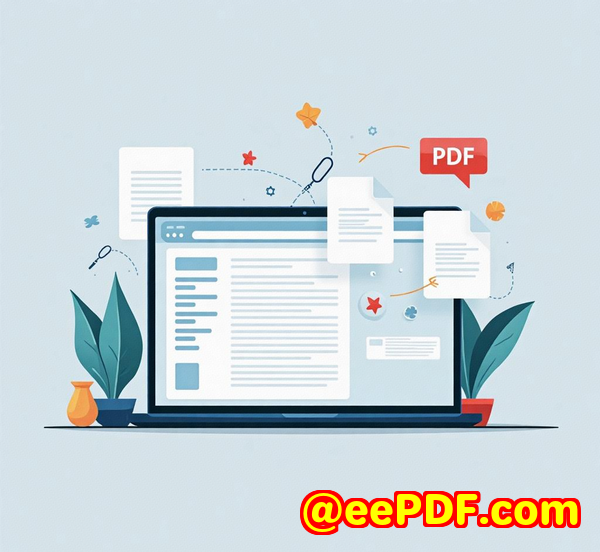The Benefits of Converting PDF to Vector for Educational Institutions A Detailed Guide
The Benefits of Converting PDF to Vector for Educational Institutions: A Detailed Guide
Every educator and academic institution knows that the landscape of learning materials is rapidly shifting toward digital formats. But with this transition comes a challenge: the need to preserve the integrity of visual content across a variety of digital mediums. Enter the importance of converting PDFs to vector formatsa step that might just change how educational materials are shared, archived, and printed in the future.

For institutions managing large volumes of educational content, this tool is a game-changer.
When dealing with PDFs, it's not always as simple as hitting "convert." The way a document renders, prints, or gets modified can drastically change depending on the format it's in. And when a PDF needs to be repurposed for presentations, print publications, or even reformatting for mobile devices, the traditional static PDF format often falls short.
But what if we could convert these files into a format that could scale to any size without losing quality? That's where the VeryDOC PDF to Vector Converter Command Line SDK comes ina tool designed to convert PDF files into scalable vector formats like EMF, WMF, SVG, and more, making it invaluable for educational institutions.
Let me walk you through how this tool works and why I think it's the perfect fit for educational environments.
The Product Solution: Why You Need to Convert PDF to Vector Formats
VeryDOC PDF to Vector Converter is a powerful command-line SDK that turns your standard PDFs into scalable vector graphic formatsthink WMF, EMF, EPS, SVG, and others. These formats preserve image clarity, no matter how much you zoom or scale them.
As an educator or someone who works within an educational institution, you'll find this tool incredibly useful when dealing with large sets of visual content like diagrams, maps, or charts that need to be resized for different types of media or educational tools. Whether you're planning a lecture, creating student materials, or printing course content, this conversion tool will help you manage your content efficiently.
Here are just a few key features of VeryDOC PDF to Vector Converter that make it stand out:
- Batch Conversion: Imagine you're working with hundreds of PDF files. With VeryDOC, you can convert them all at once, rather than individually, saving you valuable time.
- No Need for Adobe Acrobat: Unlike many PDF converters that require you to have Adobe Acrobat installed, this tool works without it. This means it's great for situations where Acrobat is unavailable, or you simply want to reduce software dependency.
- Supports Multiple Formats: It doesn't just convert to one vector format. You can choose from a variety of options including SVG, EPS, WMF, and EMF. This flexibility allows for precise control over how your content is rendered across different platforms and devices.
- High-Quality Output: The conversion process ensures that all fonts, graphics, and images are transferred into vector formats, allowing for infinitely scalable designs. Whether you're printing a poster or viewing the content on a tiny mobile screen, the quality stays sharp and consistent.
Real-World Application: Converting PDFs for Educational Use
In my experience, one of the most impactful uses of this tool is when dealing with educational diagrams, architectural layouts, and technical drawings. Many educational institutions and publishers rely on these types of materials to communicate complex ideas effectively. PDFs are often the go-to format for distributing these materialswhether it's a graph for a science class or a map for a geography lesson.
However, PDFs come with some inherent limitations. For example, the content within a PDF can lose its quality when resized for printing on larger or smaller formats. Vector formats solve this problem by allowing these diagrams and images to scale without any loss in sharpness.
Here's how I've personally used the VeryDOC PDF to Vector Converter in a real-world scenario:
- Classroom Presentations: When I was preparing slides for a lecture, I had several PDFs containing charts and graphs that were difficult to read when displayed on a large screen. After converting them to SVG or EMF formats, I could scale them freely, ensuring the text and lines remained crisp no matter the screen size.
- Student Handouts: Many educational handouts I distribute include diagrams that need to be printed on different paper sizes. By converting the PDF content to vector formats, I could easily adjust the size without any degradation in quality, ensuring students always received high-quality materials.
- Maps and Diagrams for eLearning: One of the most significant challenges for eLearning platforms is ensuring that diagrams and images retain their clarity across different devices. Converting content into SVG formats allowed for mobile-friendly designs that look just as good on a smartphone as they do on a desktop.
The VeryDOC PDF to Vector Converter saves an enormous amount of time by automating the entire conversion process. Instead of manually tweaking PDF files for every project, I simply input the PDFs, choose my preferred output format, and let the tool do the heavy lifting. This is particularly useful for institutions that need to process large volumes of documents without the headache of manually adjusting each one.
Comparing to Other Tools: Why VeryDOC Stands Out
It's not all smooth sailing in the world of PDF to vector conversions. Many other tools on the market claim to do the same thing, but they fall short in several key areas.
Drawbacks of Other Tools:
- Some require you to have specific software installed, like Adobe Acrobat.
- Others can't handle batch processing or large volumes of files.
- Many tools have limited format options, restricting the flexibility of what you can output.
But VeryDOC PDF to Vector Converter shines in areas where these other tools fail:
- No software dependencies: You don't need Adobe Acrobat to run the tool.
- Batch conversion: You can process multiple PDFs simultaneously, saving hours of work.
- Multiple format support: Whether you need EMF, WMF, or SVG, the tool has you covered.
Core Advantages for Educational Institutions
Let's break down exactly why this tool is a must-have for educational environments:
- Efficiency in Handling Large Volumes: Converting educational materials like research papers, presentations, and visual aids to vector formats allows you to save time and streamline your workflows.
- Improved Content Accessibility: The ability to scale diagrams and charts to any size ensures that students, whether they're on a small mobile device or a large screen, can access content that is clear and easy to read.
- Cost Savings: You'll save money on printing costs because vector formats maintain quality at any size. You won't need to reprint content due to resolution or scaling issues.
- Enhanced Collaboration: When dealing with collaborative educational projects, sharing vector graphics ensures that everyone has access to high-quality, scalable content. This is particularly important for collaborative research and interactive content creation.
- Cross-Platform Compatibility: Whether you're sharing content via email, a website, or a digital learning platform, the flexibility of vector formats ensures that your content looks perfect on any device or platform.
Conclusion: My Personal Recommendation
If you're involved in any educational capacity, whether it's teaching, creating materials, or managing educational content, I can't recommend VeryDOC PDF to Vector Converter enough. The ability to convert PDFs into scalable vector formats gives you complete control over your content. It not only ensures better presentation quality but also makes managing and printing educational materials much more efficient.
Start your free trial now and boost your productivity by visiting VeryDOC PDF to Vector Converter.
Custom Development Services by VeryDOC
VeryDOC offers comprehensive custom development services to meet your unique technical needs. Whether you require specialized PDF processing solutions for Linux, macOS, Windows, or server environments, VeryDOC's expertise spans a wide range of technologies and functionalities.
VeryDOC's services include the development of utilities based on Python, PHP, C/C++, Windows API, Linux, Mac, iOS, Android, JavaScript, C#, .NET, and HTML5. VeryDOC specializes in creating Windows Virtual Printer Drivers capable of generating PDF, EMF, and image formats, as well as tools for capturing and monitoring printer jobs, which can intercept and save print jobs from all Windows printers into formats like PDF, EMF, PCL, Postscript, TIFF, and JPG. Additionally, VeryDOC provides solutions involving system-wide and application-specific hook layers to monitor and intercept Windows APIs, including file access APIs.
VeryDOC's expertise extends to the analysis and processing of various document formats such as PDF, PCL, PRN, Postscript, EPS, and Office documents. The company offers technologies for barcode recognition and generation, layout analysis, OCR, and OCR table recognition for scanned TIFF and PDF documents. Other services include the development of report and document form generators, graphical and image conversion tools, and management tools for images and documents. VeryDOC also provides cloud-based solutions for document conversion, viewing, and digital signatures, as well as technologies for PDF security, digital signatures, DRM protection, TrueType font technology, and Office and PDF document printing.
If you have specific technical needs or require customized solutions, please contact VeryDOC through its support center at https://support.verypdf.com/ to discuss your project requirements.
FAQ
1. How does PDF to Vector conversion benefit educational institutions?
Converting PDFs to vector formats preserves the quality of diagrams and images when resizing or printing. It ensures the content remains sharp and clear across various media, making it ideal for educational materials.
2. Can I convert multiple PDFs at once using this tool?
Yes, the VeryDOC PDF to Vector Converter supports batch processing, allowing you to convert multiple files simultaneously.
3. What vector formats are supported?
The tool supports several formats including WMF, EMF, SVG, EPS, XPS, PS, PCL, PXL, SWF, etc.



